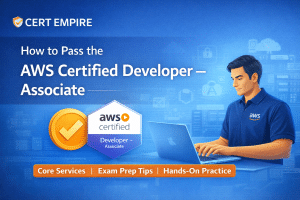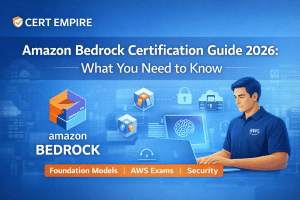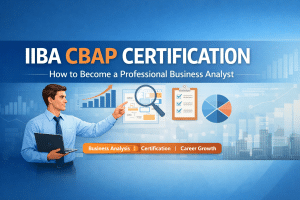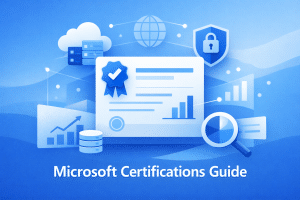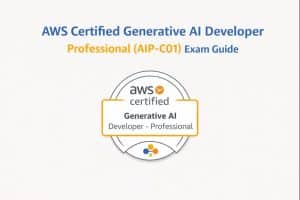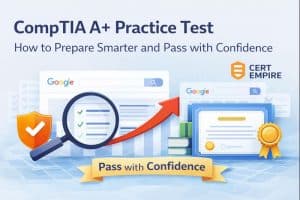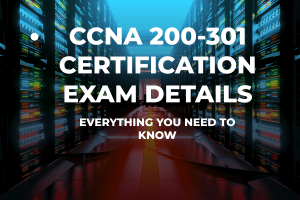Cloud certs can be a game-changer for your career, but some of them feel like climbing Mount Everest. Why? Because they test everything you think you know and a whole lot more. They are not just about rote memorization; they dig deep into your practical skills, ability to troubleshoot under pressure, and understanding concepts that aren’t always black and white.
Let’s understand this in detail.
A Closer Look at the Hardest Cloud Computing Certifications
The tech world keeps growing, and cloud certs are a big part of it. But not all cloud exams are built the same. Some are way harder than others. These tough certs demand more than just reading a few books or watching tutorials. They test your ability to think, act, and solve real problems under pressure.
Let’s dive into the ones that often leave people sweating.
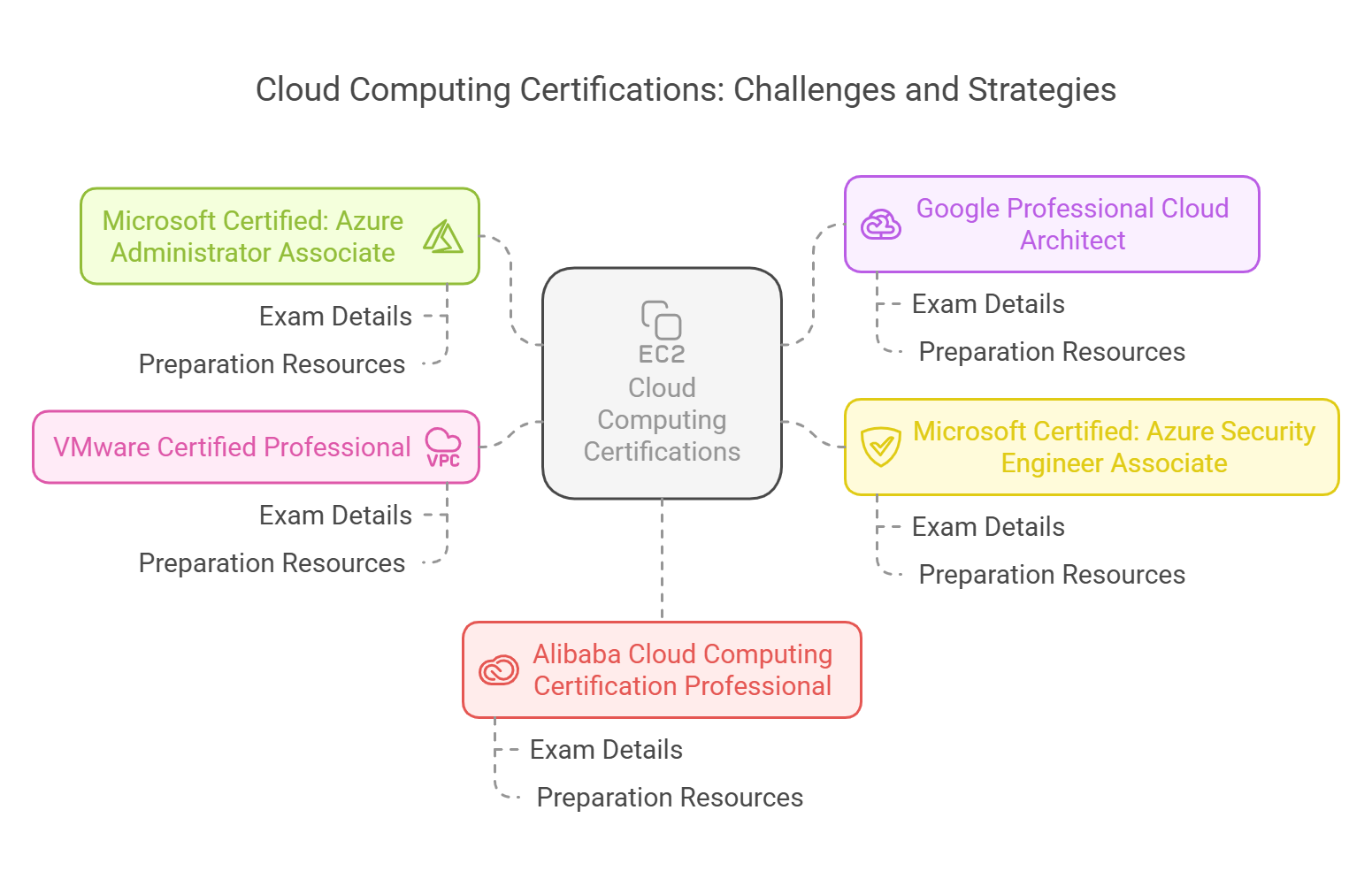
Google Professional Cloud Architect: A Test of Strategy and Depth
Google’s cloud architect cert doesn’t just ask you what you know. It pushes you to prove how well you can strategize, plan, and execute solutions on GCP.
Balancing Theory with Practical Application
Unlike some certs that focus heavily on hands-on skills, Google’s test expects you to understand the why behind decisions. You might know how to set up a Kubernetes cluster, but do you understand the business impact of doing it a certain way? That’s the kind of thinking this exam tests.
And then there’s the practical side. Designing a data pipeline? You’ll need to know about BigQuery, Dataflow, and Pub/Sub, and how they all work together seamlessly. Theory and practice collide in a way that makes this exam stand out. Many candidates even begin with simpler certifications before attempting this one, see our guide on the Easiest Cloud Certifications for Beginners if you’re just starting out.
Overlooked Areas That Trip Up Candidates
- Networking: People often forget how crucial Google’s VPC setups are.
- Security: If you’re not sharp on Identity and Access Management (IAM), you’re in trouble.
- Cost Optimization: Understanding Google’s pricing structure is key, but it’s easy to overlook.
Microsoft Certified: Azure Administrator Associate – AZ-104: The Backbone of Azure Operations
The AZ-104 exam is where theory meets hands-on execution. As an Azure Administrator, you’ll be responsible for managing cloud resources, monitoring performance, and ensuring security. This certification isn’t just about knowing what Azure services do, it’s about using them efficiently in real-world scenarios.
Microsoft doesn’t just test your ability to memorize commands; it evaluates how well you can apply them in practical situations. You’ll be tasked with managing Azure identities, configuring networking, and optimizing cost and performance, all while ensuring high availability. Many candidates struggle because they underestimate the depth of knowledge required, especially when it comes to troubleshooting and automation with Azure PowerShell and CLI. If you’re looking for a structured breakdown of the AZ-104 exam, including its format, key topics, and preparation strategies, this detailed guide on Understanding the AZ-104 Certification can help you prepare effectively.
If you think you can pass AZ-104 by just reading documentation, think again. You need real experience working with Azure resources. Spend time deploying virtual machines, configuring storage accounts, and setting up load balancers in a live environment. The more you practice, the more confident you’ll be when Microsoft throws complex scenarios your way.
They are not just about rote memorization; they dig deep into your practical skills. If you’re unsure where to start before tackling these tough exams, check out this list of the Best Cloud Certifications in 2026 for a complete roadmap.
Microsoft Certified: Azure Security Engineer Associate – AZ-500: Defending the Cloud from Modern Threats
The AZ-500 exam is all about protecting Azure environments from security threats. This certification is not for those who take security lightly, it demands a deep understanding of identity management, threat protection, and compliance. You’ll need to think like a security engineer while also keeping up with the latest cloud security trends.
Microsoft isn’t testing you on basic network security and concepts here. They expect you to know how to implement conditional access policies, monitor security events in Azure Sentinel, and protect workloads using Microsoft Defender for Cloud. Many candidates struggle with the exam because they don’t have enough hands-on experience configuring security controls across hybrid and multi-cloud environments.
Cloud security evolves rapidly, and AZ-500 reflects that. You’ll need to be familiar with the latest security best practices, compliance frameworks like NIST and GDPR, and Microsoft’s ever-changing security offerings. The best way to prepare? Stay engaged with Microsoft Learn, use Azure Security Center, and simulate real-world attack scenarios in a test environment. For a deep dive into the AZ-500 exam, including security concepts, real-world applications, and study tips, read this guide on AZ-500 Certification: https://certempire.com/az-500-certification-azure-security-engineer-guide/
VMware Certified Professional – Data Center Virtualization (VCP-DCV)
If you think VMware is just about virtual machines, think again. The VCP-DCV cert dives into data center virtualization, including storage, networking, and cloud automation.
This exam expects you to be fluent in VMware technologies like vSphere, vSAN, and NSX. You’ll need to understand how they integrate to form scalable, secure, and efficient data centers.
High Expectations for Real-World Use Cases
Real-world application is at the heart of this cert. Questions often involve troubleshooting broken systems or optimizing setups. If you are not familiar with common pitfalls in VMware environments, you’ll struggle.
Alibaba Cloud Computing Certification Professional: The Rising Star of Difficulty
Alibaba might not be as popular as AWS or Azure globally, but in Asia, it’s huge. And its certs aren’t a walk in the park.
Unique Features That Set It Apart
Alibaba Cloud exams cover services that differ from what you might be used to with AWS or Azure. You’ll need to adapt to their tools and terminology, which can feel alien if you are new to their ecosystem.
Challenges Faced by Non-Native Speakers
One of the biggest hurdles for many candidates is the language barrier. While the exam is available in English, the documentation and training resources are often in Chinese, which adds an extra layer of difficulty for non-native speakers.
The Role of Hands-On Labs in Success or Failure
Theory is fine, but cloud certs are all about showing you can do stuff. The hands-on labs or simulations in these exams are where most people trip up. Why? Because they expose gaps in practical knowledge.
Imagine being asked to configure a VPC in AWS, set up a load balancer, and troubleshoot a connection issue, all in 30 minutes. If you’ve only watched tutorial videos or skimmed documentation, you’re in for a rough time.
What Makes Labs So Challenging?
- Unpredictable Scenarios: You don’t know what’s coming. It could be a simple deployment or a nightmare troubleshooting session.
- High Stakes: Labs often carry more weight than multiple-choice questions. Messing them up can cost you the cert.
- Limited Feedback: During the exam, you won’t know if you’re on the right track until it’s too late.
Get your hands dirty. Spend hours in cloud platforms like AWS services, Azure, or Google Cloud. Build stuff, break it, and fix it. Use free tiers or services like A Cloud Guru and Qwiklabs to practice in real environments. Memorizing commands isn’t enough, you have got to understand how everything connects.
Complex Multi-Cloud Scenarios: A Growing Trend in AWS Exam
Here’s the curveball: single-cloud expertise isn’t enough anymore. Multi-cloud setups are becoming the norm for cloud engineers, and exams are reflecting that. You might face questions where AWS solutions architect certification are compared to Azure or Google Cloud equivalents.
Why Multi-Cloud Is a Headache
- Different Terminologies: AWS calls it an S3 bucket, Azure calls it Blob storage, and Google calls it Cloud Storage. Keeping track of these terms is a nightmare.
- Inconsistent Features: The same service might behave differently across platforms. For example, IAM roles in AWS don’t work the same way as role-based access control (RBAC) in Azure.
- Cross-Platform Skills: You might need to migrate workloads or design systems that work seamlessly across multiple clouds. These aren’t hypothetical situations—companies are doing this every day.
What Can You Do?
Start small. If you’re focused on AWS, learn the equivalent services in Azure and Google Cloud. There are plenty of comparison charts online that break this down. Then, try building projects that use more than one platform. For example, deploy a database in Google Cloud and connect it to an app running in AWS.
Proven Strategies to Pass Tough Cloud Certifications
Certifications are a goldmine, but they’re not handed to you on a silver platter. And the payoff is real, cloud professionals with advanced certifications often top earning charts. Here’s a breakdown of the Highest Paying Cloud Jobs in 2026 so you can see the financial impact.
If you’re up for the challenge, here’s how to approach these tough exams, from understanding the exam objectives to mastering time management.
Understanding the Blueprint: Aligning Your Preparation with Exam Objectives
If there’s one thing you can’t skip, it’s understanding the exam blueprint. Every major cloud provider like AWS, Azure, and Google Cloud has exam objectives that outline what’s tested. Sounds obvious, right? Yet many candidates jump straight into random practice questions, hoping for the best.
The thing is, knowing the exam objectives gives you a roadmap. Without this, you’re just wandering aimlessly, hoping you’ll remember the right topics on exam day.
Here’s the kicker: exam objectives aren’t just a list of topics. They’re a reflection of what the exam creators think you need to know. If they say you need to understand AWS IAM policies, guess what? There’s no way around it. Dive deep into that section.
Now, don’t just read through these objectives. Break them down:
- Highlight the key areas: What’s the exam going to test you on? What’s important?
- Match your study resources: Make sure your study materials align with the objectives. It’s pointless studying advanced networking concepts if you’re just testing for basic IAM setups.
Start with these objectives, and you will already be ahead of the game.
How Practice Labs Can Simulate Real-World Scenarios?
This is where most candidates get stuck. Sure, you can memorize terms and answer theoretical questions, but can you actually do it when faced with real-world scenarios?
Cloud exams aren’t just about knowing what a service does, they want you to prove you can use it effectively. That’s where practice labs come into play. They are designed to simulate real environments, where you configure, troubleshoot, and optimize cloud resources.
Here’s the issue: no amount of book learning can prepare you for this. You need to get hands-on experience, and the only way to do that is in an actual cloud environment. Services like A Cloud Guru and Qwiklabs offer a sandbox environment where you can practice.
Here’s the thing, if you haven’t done labs, the exam’s going to feel like you’re diving into the deep end without a life jacket. If you’ve gone through enough practice labs, however, things start to click. It’s not about rote learning anymore. It’s about problem-solving.
Leveraging Study Groups and Peer Support Communities
We all know the feeling of sitting down with a study guide and feeling completely overwhelmed. If you’re alone, it’s easy to get stuck. But, here’s a trick, use the power of community. Study groups and peer support communities can make a world of difference.
Being part of a group gives you access to multiple perspectives. Someone else might have figured out a tricky AWS configuration while you were struggling with it for hours.
But there’s more. A study group isn’t just about exchanging notes. It’s about learning together, motivating each other, and sharing knowledge. It also provides a sense of accountability—if you tell the group you’ll study a specific topic, you’re more likely to stick to it.
In these groups, don’t be afraid to ask questions. Sometimes, those “basic” questions can help you gain a deeper understanding of the topic. Plus, you’ll get insights from others who’ve gone through the exam.
Why Mock Exams Are a Game Changer?
Let’s be real for a minute: no one likes taking mock exams. But if you want to pass a tough cloud cert, they’re absolutely necessary. Why? Because they give you a feel for the actual test.
Here’s the thing about mock exams: they do more than just test your knowledge. They test your exam-taking strategy. You’ll get a sense of the time pressure, the types of questions, and how they’re worded.
And let’s not forget the mental aspect. Taking a mock exam and failing doesn’t mean you’re not prepared. It means you have areas to improve on.
But here’s how to get the most out of mock exams:
- Treat them like the real thing: Take them under exam conditions. Don’t cheat or peek at notes.
- Review your mistakes: This is the most important part. Look at every question you got wrong and figure out why you missed it. What did you not understand? Did you rush through the question?
- Track your progress: As you keep taking mocks, your scores should improve. Don’t get discouraged by your first try—use it as feedback.
Time Management: An Overlooked Preparation Key
So, you’re preparing for the toughest cloud exams. You know the material, you’ve practiced, and you’re feeling confident. But guess what? All of that can go out the window if you don’t manage your time well.
Time management isn’t just about answering questions quickly. It’s about making strategic choices during the exam.
Here’s how to manage your time better:
- Prioritize easy questions first: Knock out the ones you know cold. Don’t waste time on questions you’re unsure about.
- Don’t get stuck on tough questions: If a question is taking too long, flag it and move on. You can always come back later.
- Keep an eye on the clock: Know how much time you have left for each section. It’s easy to get lost in a complex question, but remember, the clock is ticking.
Most candidates fail because they spend too much time on the first few questions, leaving themselves with too little time at the end. Practicing under time constraints, like mock exams, is the best way to overcome this.
Tools and Resources to Simplify Your Preparation
Cloud certifications are tough. There’s no sugar-coating it. The preparation can feel like running a marathon, but with the right tools and resources, that race doesn’t have to be as brutal.
Here’s how to use the best resources to get you across that finish line.
Official Training and Learning Platforms: Are They Enough?
When you decide to go after a cloud cert, the first thing that’ll likely pop up in your search is the official training offered by the cloud providers themselves. AWS, Microsoft, Google, everyone’s got their own official programs.
They sound great, right? After all, they’re from the same folks who built the cloud services you’re trying to get certified in. But are these official courses enough? Well… sort of, but maybe not.
You’ll get a good understanding of what the platform is about, and you’ll be able to work your way through their exams. But here’s the thing: they might not be detailed enough for some of the tougher questions.
Let’s say you’re going after AWS certifications. Sure, the official AWS training will cover the services, but it might not dive deep enough into real-world application scenarios, which are often what trip people up. You’ll need more than just a surface-level understanding of the AWS Cloud Platform if you want to really excel in the exam.
So, should you rely solely on official training? Not necessarily. It’s a good starting point, but you’ll need to expand your study resources if you’re aiming for a high score. You can get the basics down, but for the tougher stuff, you’ll need to layer your studies with hands-on practice and other study materials.
How to Choose the Right Study Material for Your Certification Exam?
Choosing the right study material for your cloud certification is like picking the right ingredients for a meal. Too many, and it gets overwhelming; too few, and you’re missing key elements. So, how do you pick the right resources? It’s simple: make sure they match your needs, exam objectives, and preferred learning style.
Start by looking at the cloud practitioner exam objectives. If your study material doesn’t cover those objectives in detail, toss it out. It’s not going to get you anywhere. After that, make sure to pick resources that cater to your learning style. Are you someone who needs to read a book to understand a concept? Maybe grab a study guide. Prefer video tutorials? Go with a platform like A Cloud Guru or Pluralsight.
Books
Books can be a great deep dive into the specifics. You can use them for detailed explanations and references when things aren’t clicking. A lot of people swear by books like “AWS Platform Certified Solutions Architect Official Study Guide” or “Microsoft Azure Architect Design: Exam Ref.” They lay everything out step-by-step, so they’re great for thorough learning.
Online courses
Online courses can be another way to learn, if you need that visual, more hands-on approach. Platforms like A Cloud Guru, Pluralsight, and Linux Academy offer labs, practice exams, and live sessions. The combination of theory and practical application is key to mastering the material.
Practice exams
These are absolutely essential. They let you test your knowledge in a timed setting, so you’re not caught off guard when it’s time for the real deal. Plus, you get to see where you’re weak. Take these exams multiple times and go over your wrong answers. You’ll need to understand why you failed a question just as much as why you passed it.
Exam Dumps by Cert Empire
Here’s where the rubber meets the road: exam dumps. Some people see them as the “cheat code” to passing certs, but the truth is, when used right, they’re a great tool. Cert Empire exam dumps are packed with real questions that come straight from the exams.
Here’s why they’re useful:
- Real-Life Questions: These dumps reflect the kinds of questions you’ll face on the exam. You won’t be thrown off by the wording or format because you’ve already seen something similar.
- Get Familiar with the Exam Pattern: The dumps help you understand the pattern of the question, how they’re worded, how tricky they can be, and the time pressure. If you’re preparing for the AZ-104 exam, practicing with AZ-104 exam dumps can help you get comfortable with real-world questions and tricky scenarios Microsoft tends to throw in It’s one thing to know the material; it’s another to know how to answer under exam conditions.
- Identify Knowledge Gaps: They’re a great way to test yourself for AWS certified security or cloud technology or cloud concepts. For those tackling AZ-500, using AZ-500 exam dumps can highlight weak areas in security concepts, compliance frameworks, and real-world threat scenarios you’ll face in the exam.When you miss a question, go back, find the right answer, and dig into why you missed it. This lets you focus on weak areas before exam day.
The key here is balance. You don’t want to memorize answers without understanding the content behind them. That’s how people fail. Use dumps to reinforce your knowledge, not as a crutch.
Conclusion!
Passing the toughest cloud digital leader certification doesn’t come easy, but it’s not impossible either. With a solid strategy, the right resources, and smart preparation, you can conquer these exams. Want to stay ahead of the curve? Keep an eye on the Future Trends in Cloud Computing shaping the certifications of tomorrow.
So, roll up your sleeves, get to work, and remember: the cloud is waiting.
FAQs About Tough Cloud Certifications
What’s the Best Way to Start Preparing for a Difficult Cloud Certification?
Start by understanding the exam objectives, then choose a mix of study materials (books, courses, and practice labs) while focusing on hands-on experience.
How Much Time Should You Dedicate to Studying for These Certifications?
Aim for 10-15 hours a week over 2-3 months, adjusting based on your current knowledge and availability.
Can You Pass Without Industry Experience?
Yes, but it’s harder; to focus on hands-on labs and mock exams to bridge the gap in practical knowledge.
Are Practice Exams Reliable for Predicting Success?
Practice exams are helpful for familiarizing yourself with the test format but should be used in conjunction with other study methods.
What Are the Common Pitfalls to Avoid When Preparing?
Avoid cramming, relying solely on practice exams, and neglecting hands-on experience, focus on consistent study and reviewing mistakes.


















